📸2025 National Prayer Breakfast in pictures
Maama Janet prayed for peace in regions experiencing conflict, such as Sudan and the DRC and called for African-led solutions to continental challenges.
This year’s 27th National Prayer Breakfast was held under the theme: “The Power of Forgiveness and Reconciliation”, at State House, Entebbe. (Credit: Maria Wamala)
NATIONAL PRAYER BREAKFAST
KAMPALA - President Yoweri Kaguta Museveni on Wednesday (October 8) hailed the Parliament of Uganda for sustaining the tradition of the National Prayer Breakfast, noting that such gatherings play a vital role in uniting the country through faith and reflection.
The President said he was pleased that Uganda has consistently held the event since its inception, explaining that its origin dates back to wartime divisions in the United States when leaders used prayer to foster unity.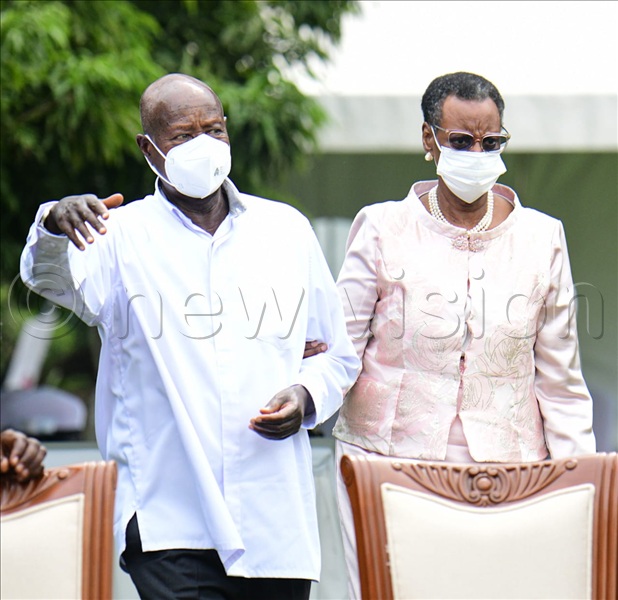
“Maama and I went to the United States for their prayer breakfast, and we were told that it started during wars when people were not talking to each other. I am glad that you have sustained it and don’t abandon it,” Museveni said. (All Photos by Maria Wamala)
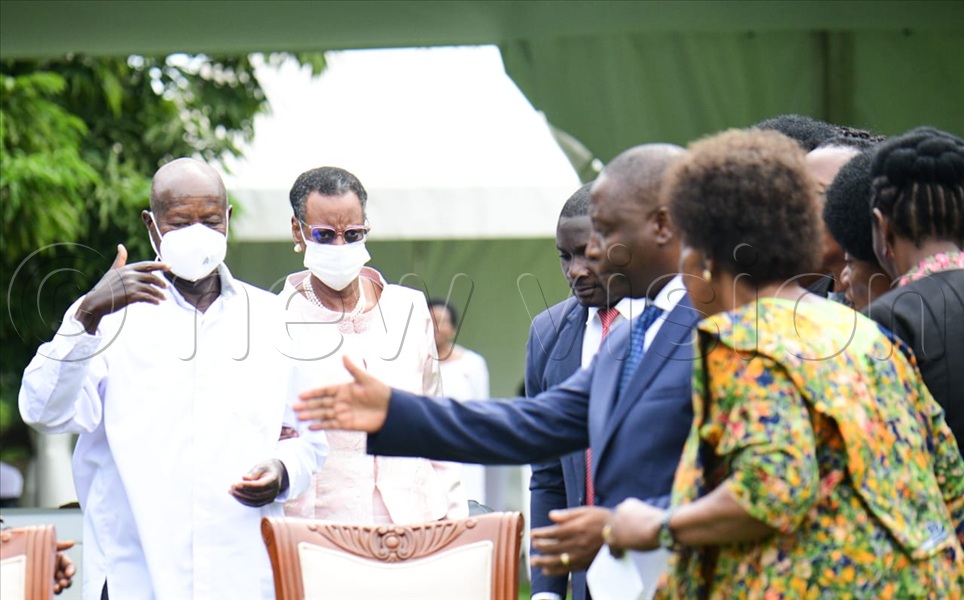
“Maama and I went to the United States for their prayer breakfast, and we were told that it started during wars when people were not talking to each other. I am glad that you have sustained it and don’t abandon it,” he said.
This year’s 27th National Prayer Breakfast was held under the theme: “The Power of Forgiveness and Reconciliation”, at State House, Entebbe.
The President thanked Hon. Chris Rwakasisi for his powerful testimony and Bishop JB Masinde for his sermon, which emphasised the need for forgiveness, tolerance, and reconciliation in both personal and public life.
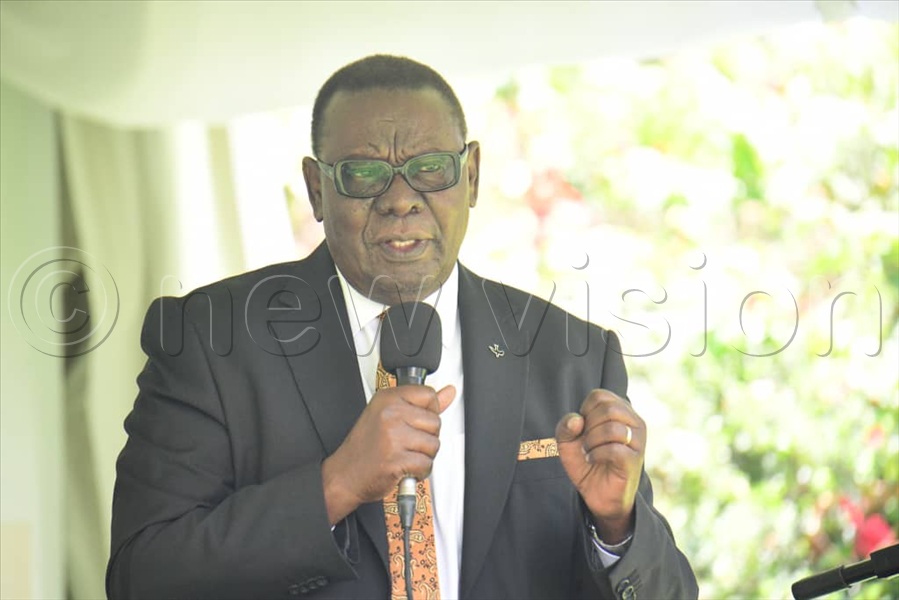
The President thanked Hon. Chris Rwakasisi (Pictured) for his powerful testimony and Bishop JB Masinde for his sermon, which emphasised the need for forgiveness, tolerance, and reconciliation in both personal and public life.
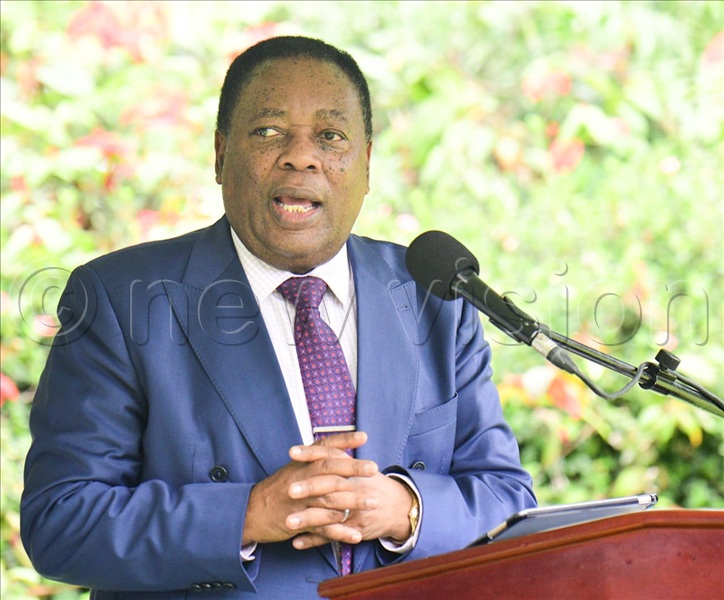
Bishop JB Masinde Senior Pastor at Deliverance Church Umoja.
He reflected on Uganda’s cultural diversity and urged citizens to find ways of blending traditional values with Christianity and other faiths.
Recalling his experiences during the bush war, the President narrated that after one of their victories, Gen. Kahinda Otafiire suggested hiding some guns in case the UPC government turned against them, but he rejected the idea, calling it treacherous.
He also recalled refusing to kill Oyite Ojok, one of Obote’s top army commanders.
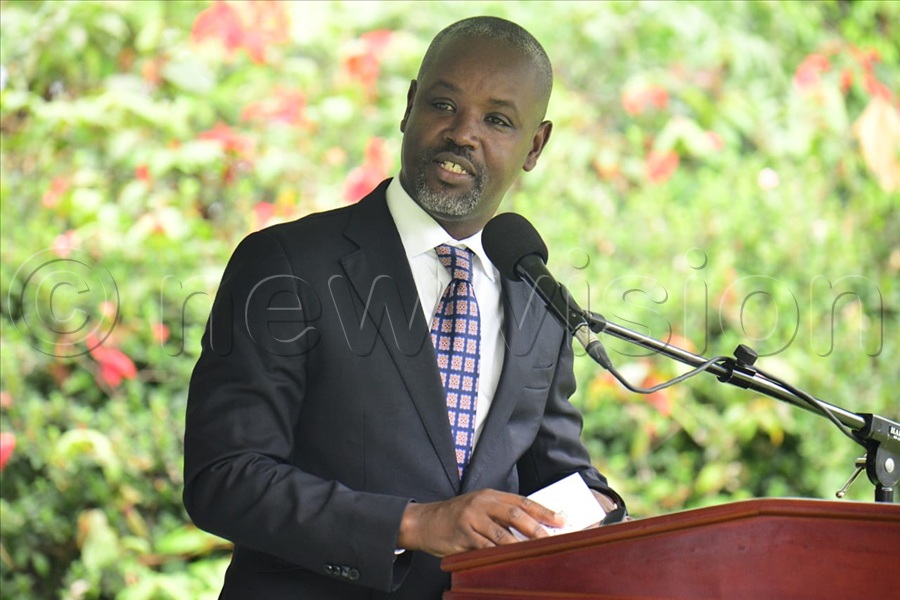
Deputy Speaker Thomas Tayebwa remarks.
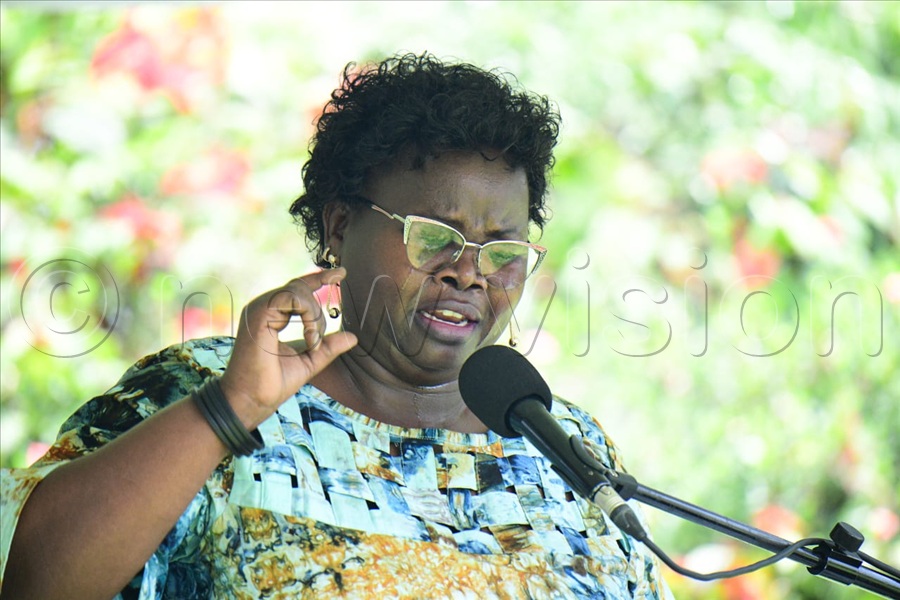
“When I got the case about Chris, I went somewhere in my office and prayed about it, whether to sign the document to kill him,” the President said. “And the voice came, ‘No, do not sign it.’ Accountability is not always punitive, but the other side can come and negotiate and okuhonga, which means to pay for the mistakes.”
He explained that although some people thought he was naïve, his approach to justice was guided by faith and principle.
“People thought I was naïve; that’s why you hear I started with twenty-seven guns,” he said.
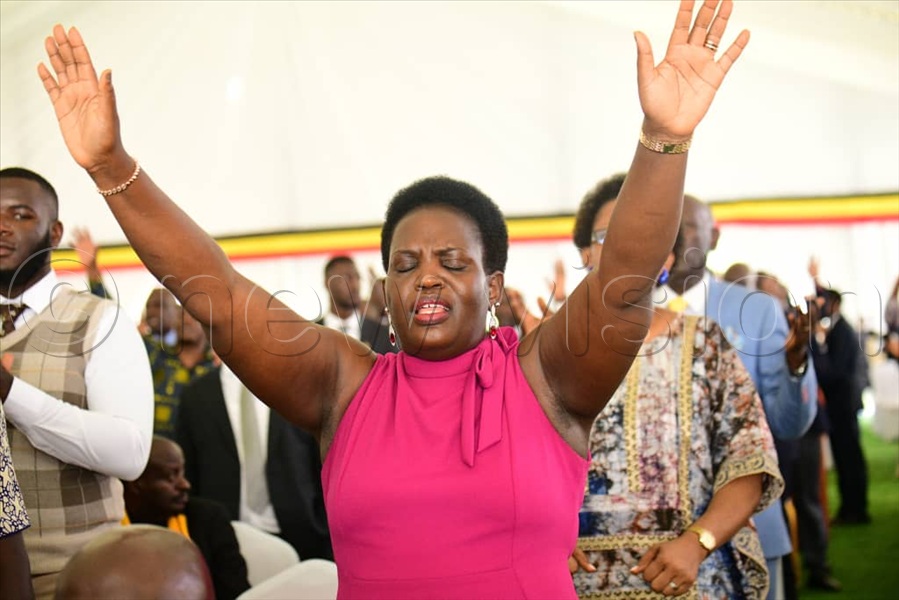
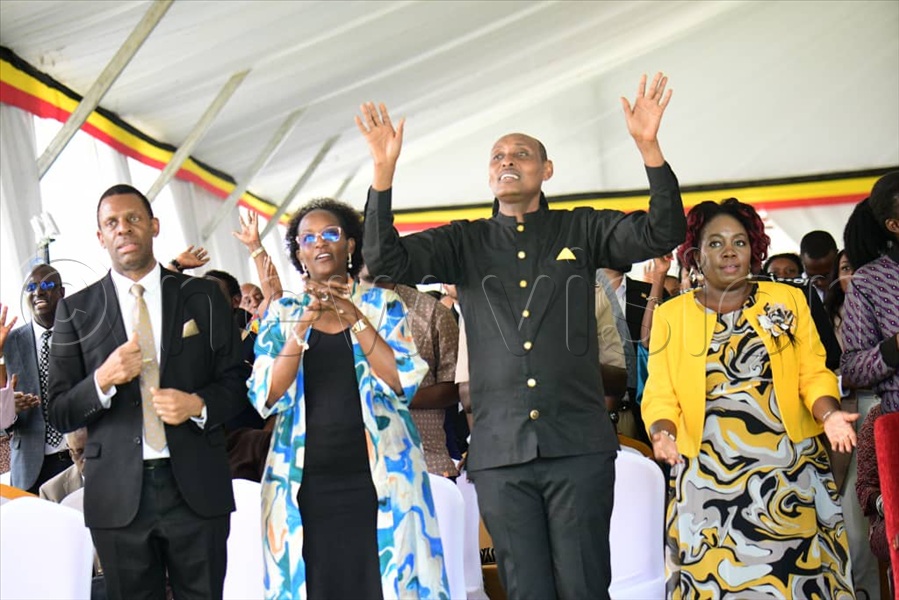
“The NRA fight was an open fight — not killing people, not poisoning people. The witness of Rwakasisi is very good. It is good that he has stayed alive, and I have stayed alive so that we can tell you these stories.”
The President added that Bishop Masinde’s message on forgiveness and gratitude should guide the nation in focusing on positive aspects of its journey.
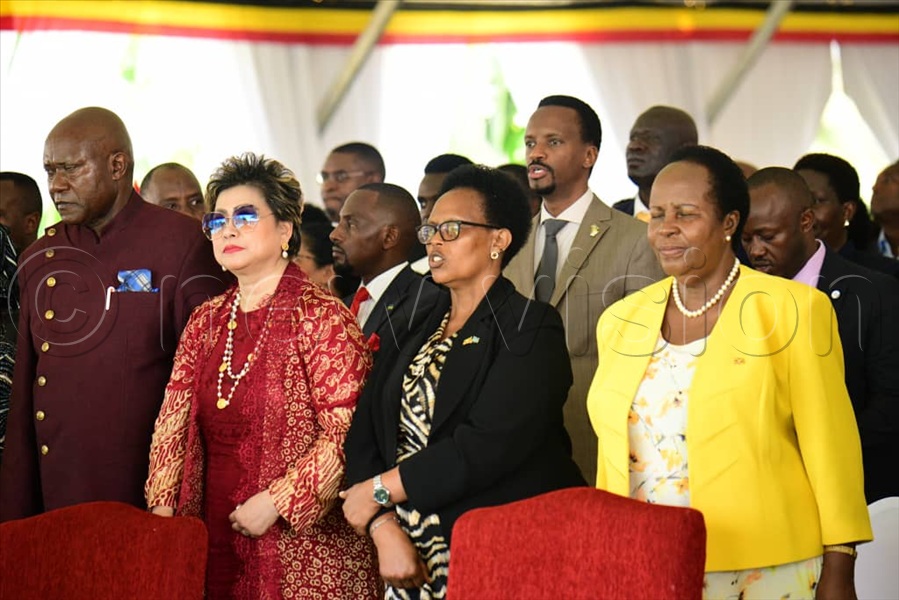
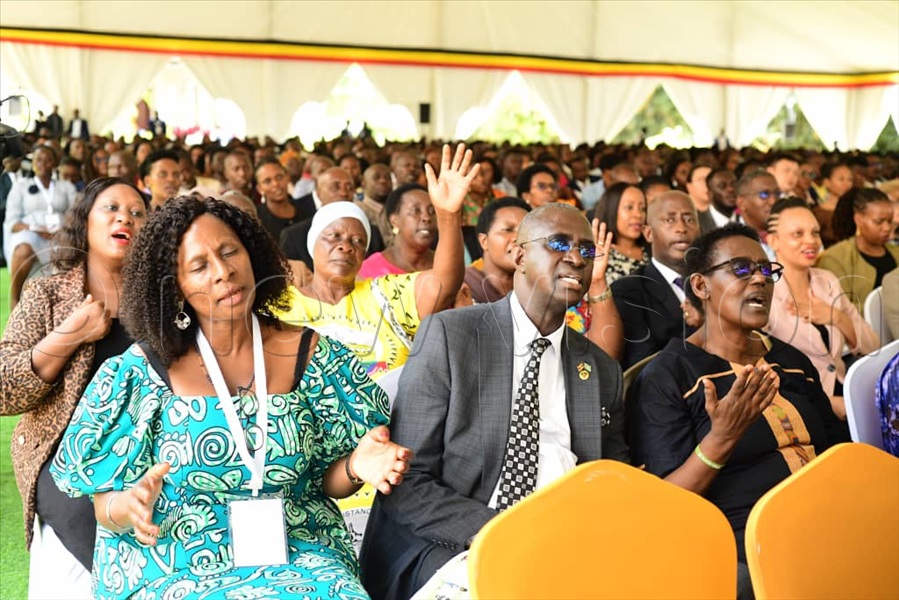
“Even if there are bad things about your country, find some good things and talk about them. This is a good message from Mzee Rwakasisi and Bishop Masinde.”
Delivering the closing prayer, the First Lady and Minister of Education and Sports, Maama Janet Kataaha Museveni, called on Ugandans to embrace forgiveness, unity, and reconciliation as the country prepares to celebrate its 63rd Independence anniversary.
She urged the nation to reflect on God’s enduring mercy and the need to restore broken relationships within families, communities, and the nation.
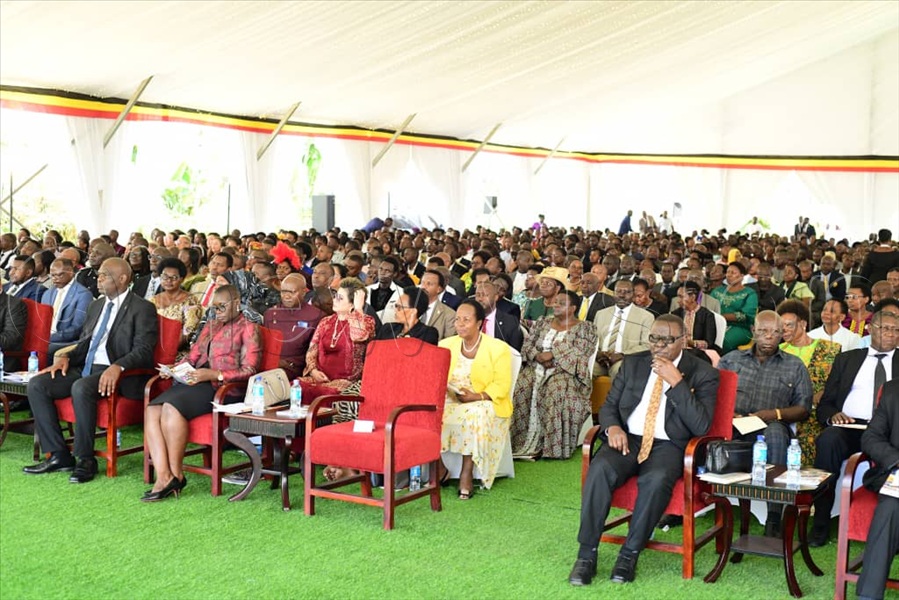
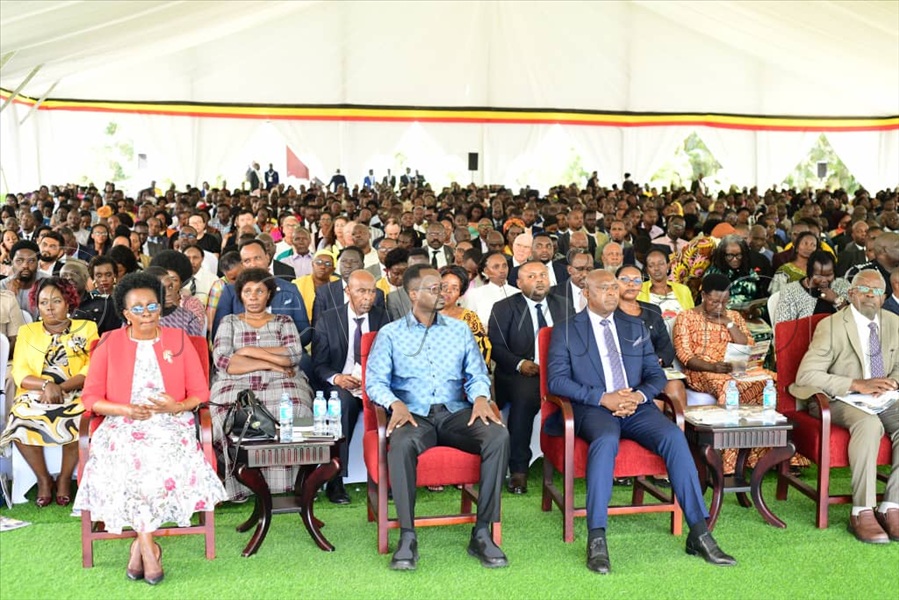
The First Lady described the gathering as a moment of gratitude to God “for the miraculous way He has carried us through the course of this year and brought us safely to yet another Independence celebration.”
Drawing from the parable of the prodigal son, the First Lady said the story exemplifies God’s unfailing love and forgiveness, reminding Ugandans that both the errant and the faithful need grace and understanding.
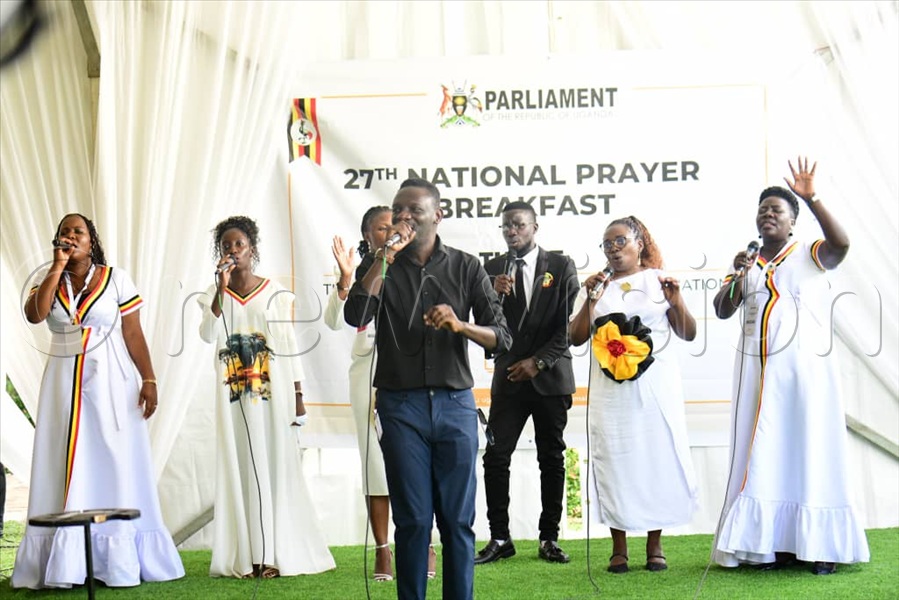
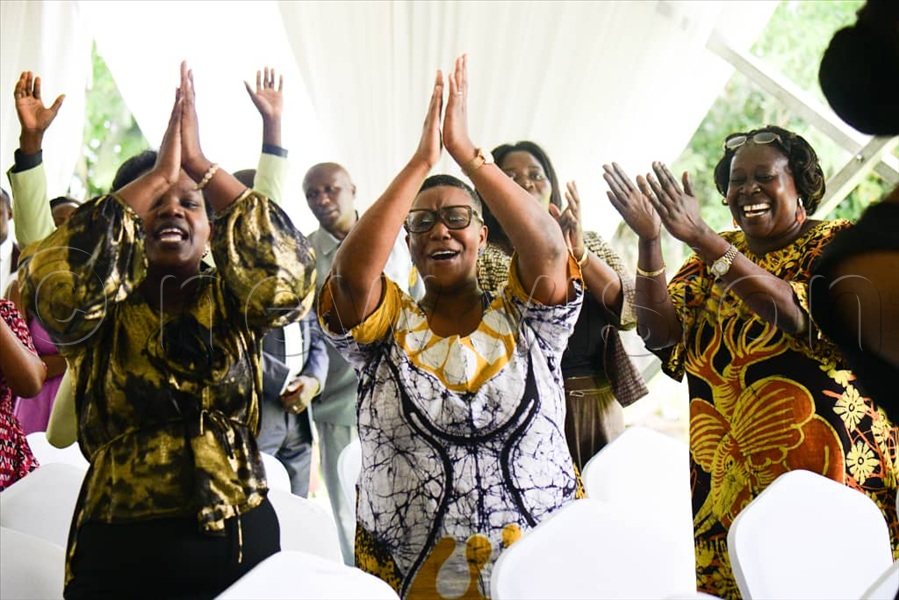
“In spite of the selfishness and irresponsibility of the prodigal son, the loving father never gave up on him,” she said, adding that “this is a picture of God’s love for us and shows that He rejoices over even one soul that turns to Him in repentance.”
She further noted that Uganda, like the rest of Africa, continues to grapple with challenges of division, corruption, tribalism, and political strife, which hinder unity and development.
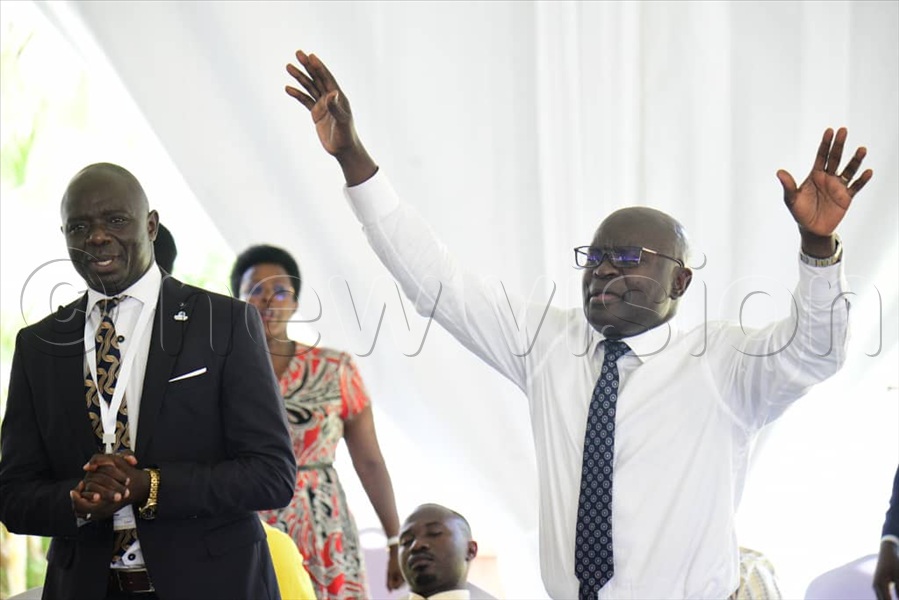
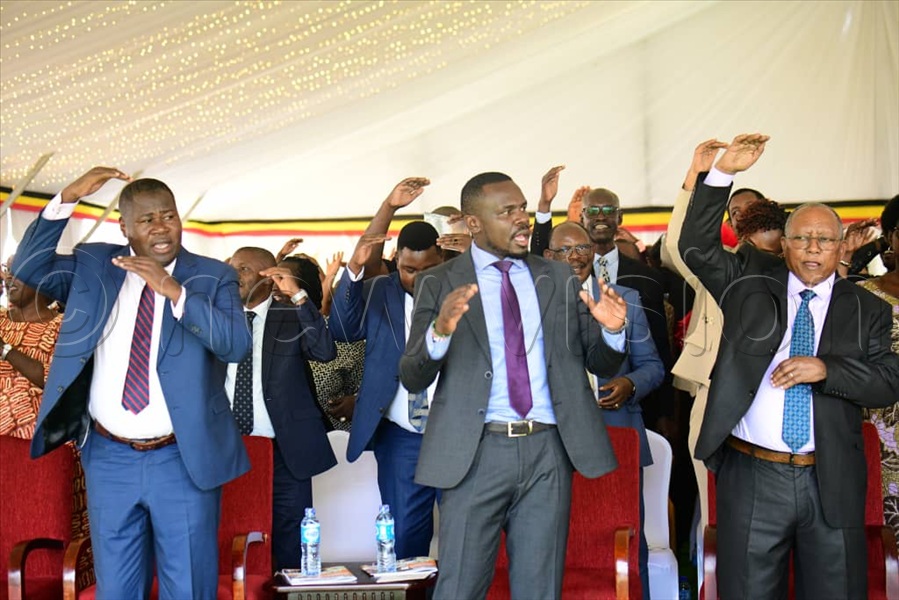
“Often, we are selfish and myopic. Whether it is unbridled corruption, wars, political intrigue, disunity, tribalism, or sectarianism — all these serve to divide our communities and bring suffering to our people,” she said.
Maama Janet prayed for peace in regions experiencing conflict, such as Sudan and the DRC and called for African-led solutions to continental challenges.
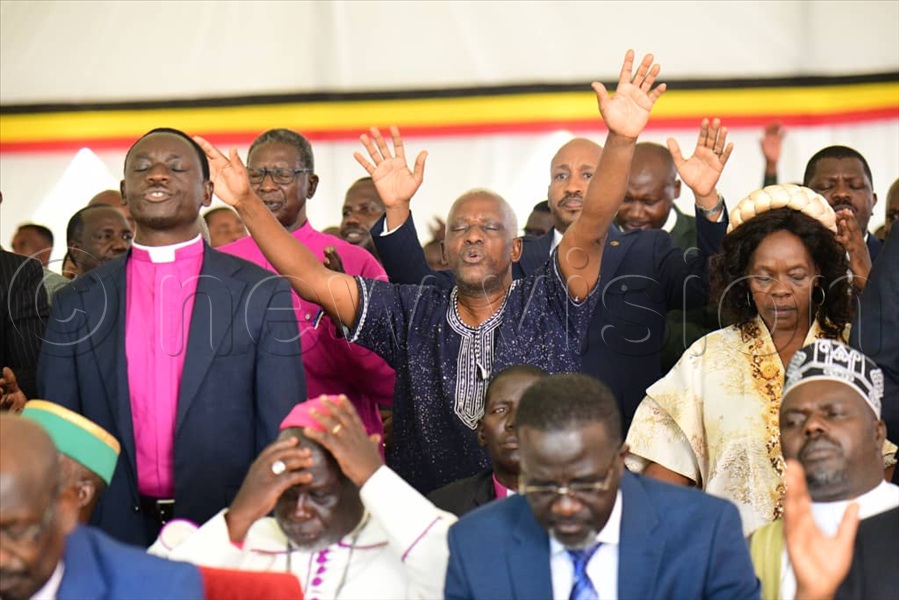
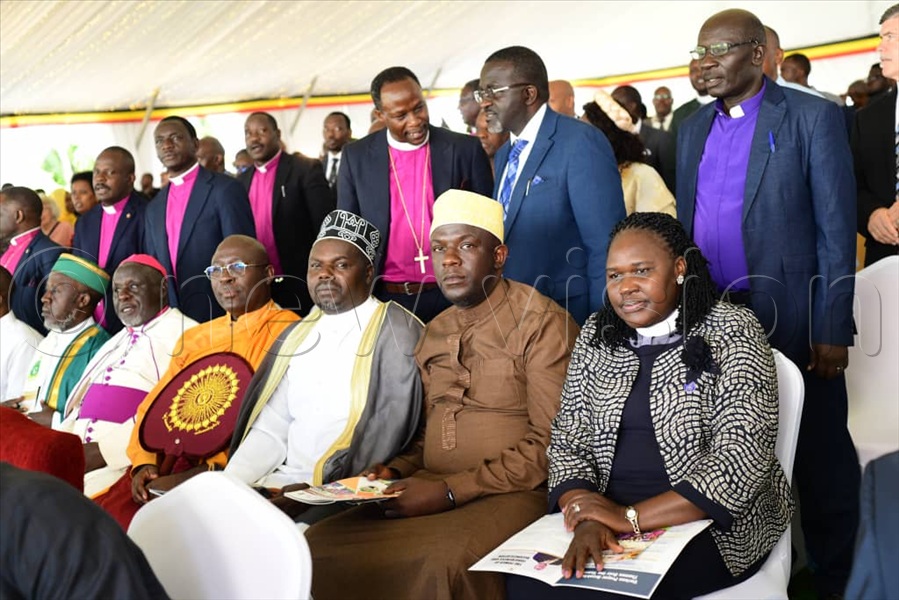
She urged Ugandans to reflect on their responsibility to promote peace and understanding, saying that “we often have to ask foreigners to come and mediate between our own people and nations,” yet the true solution lies in God’s guidance and the healing of hearts.
Citing 2 Corinthians 5:18–21, she reminded the nation that God has given His people the ministry of reconciliation, saying that “it was God in Christ reconciling and restoring the world to favour with Himself, not counting men’s trespasses against them.”
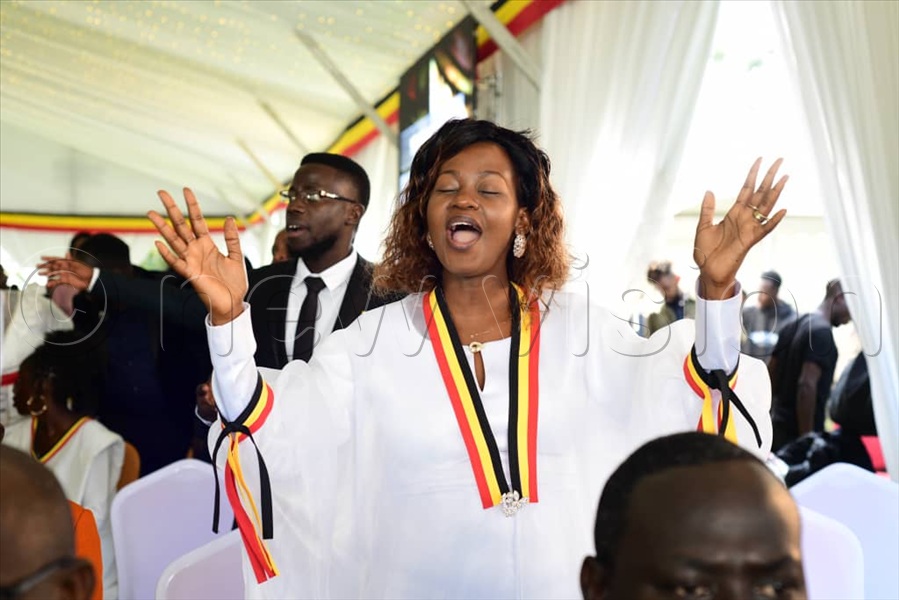
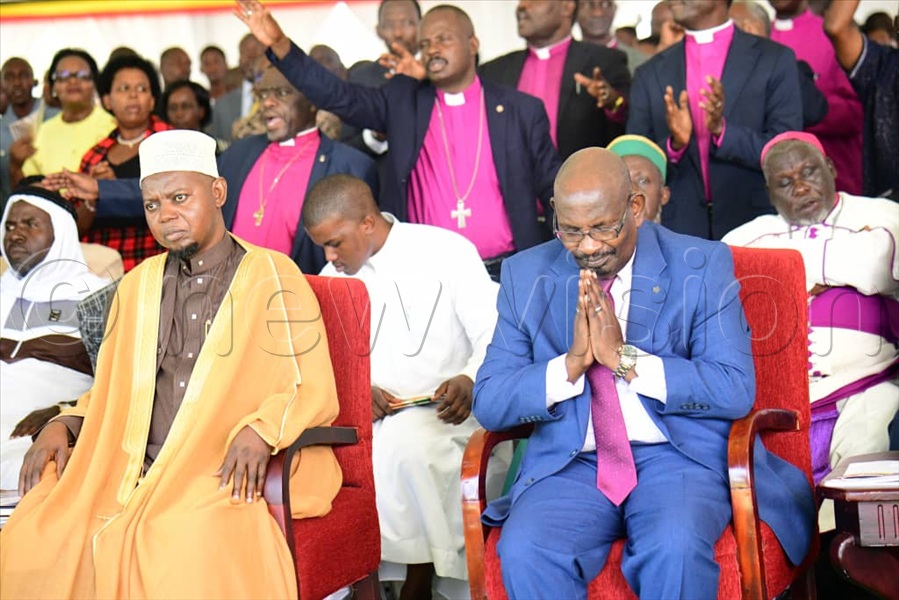
She emphasised that Ugandans must therefore “lay hold of divine favour and be reconciled to God” in both their personal and national lives.
As Uganda heads toward another election season, the First Lady appealed to leaders to demonstrate unity and maturity even in political competition.
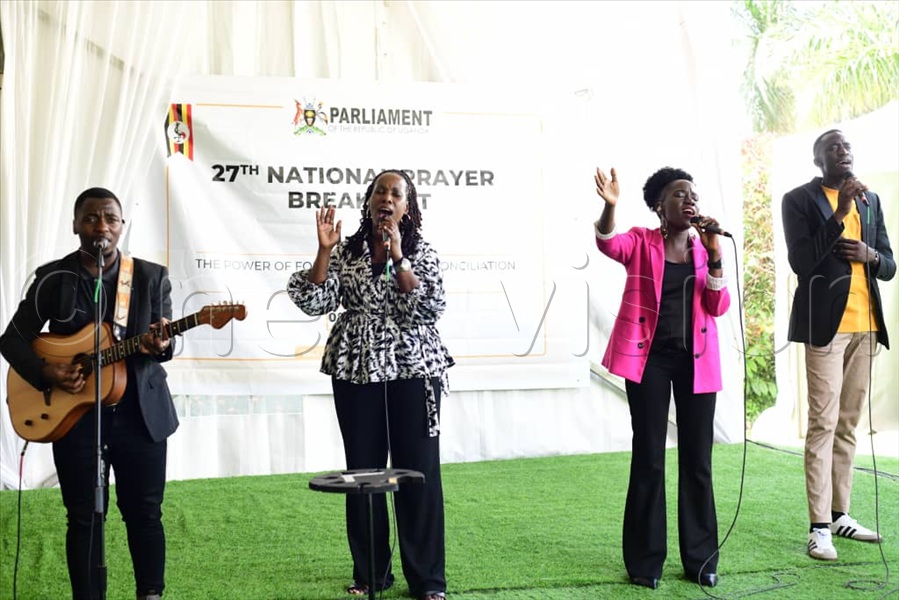
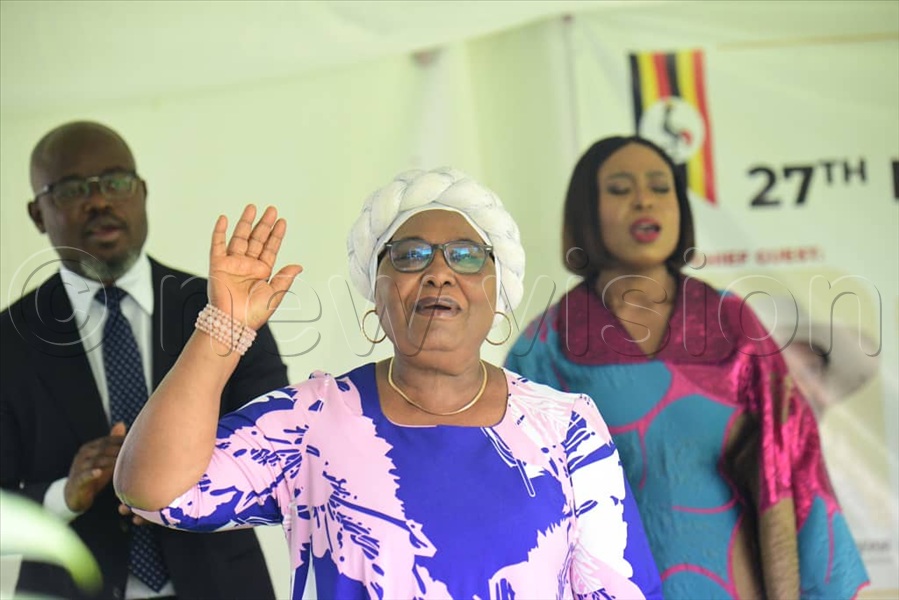
“May we as leaders lead by example and show that we can disagree politically but still remain united as Ugandans,” she said.
Concluding her message, she prayed for a spiritual awakening and revival across Uganda, saying the nation’s healing and restoration depend on turning back to God.
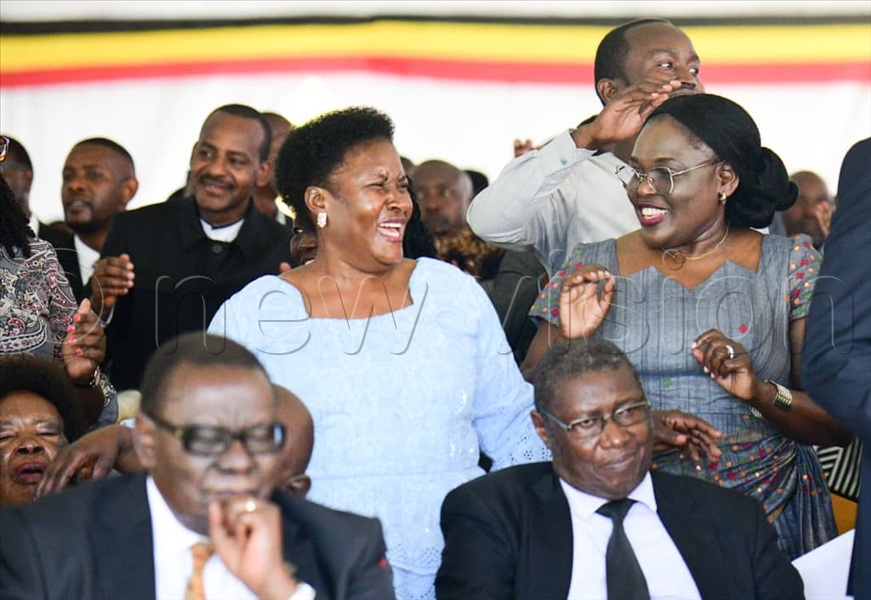
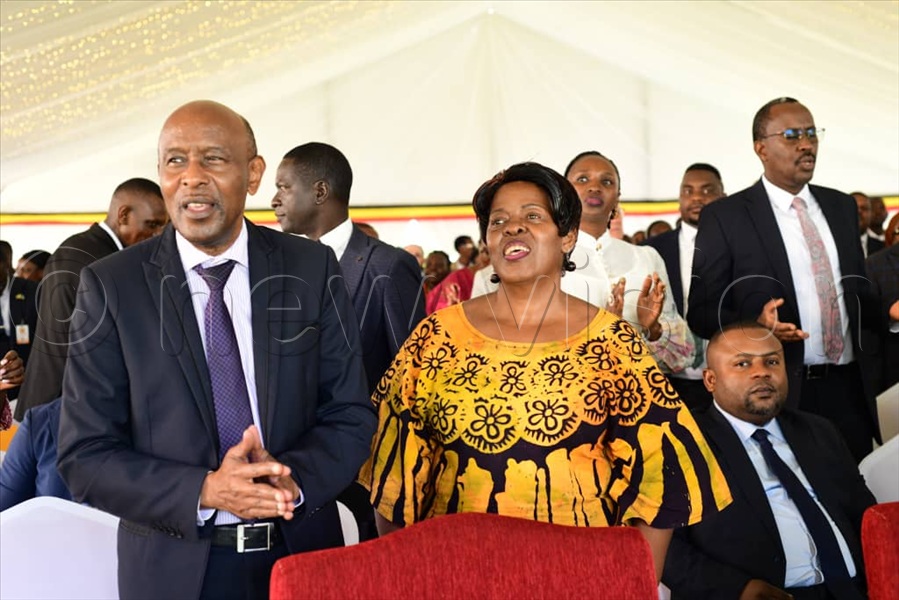
“We pray for a spiritual awakening and revival in Uganda that will spread the light of the Gospel and bring healing, reconciliation, and restoration of our identity in Jesus Christ,” she added.
Hon. Chris Rwakasisi, who was pardoned by President Museveni in 2009 after years in prison, shared a deeply moving testimony on the power of forgiveness and reconciliation.
Opening his remarks with, “My Majesty, certainly, warm greetings and love. I’m the only one who can address you as Lord of the Western World”, Rwakasisi said his purpose was to glorify Jesus through his story.
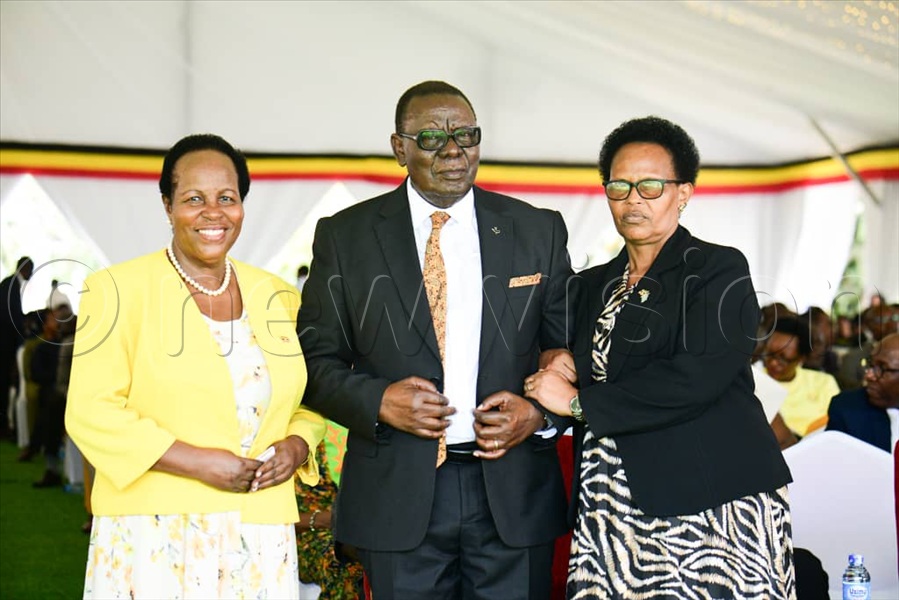
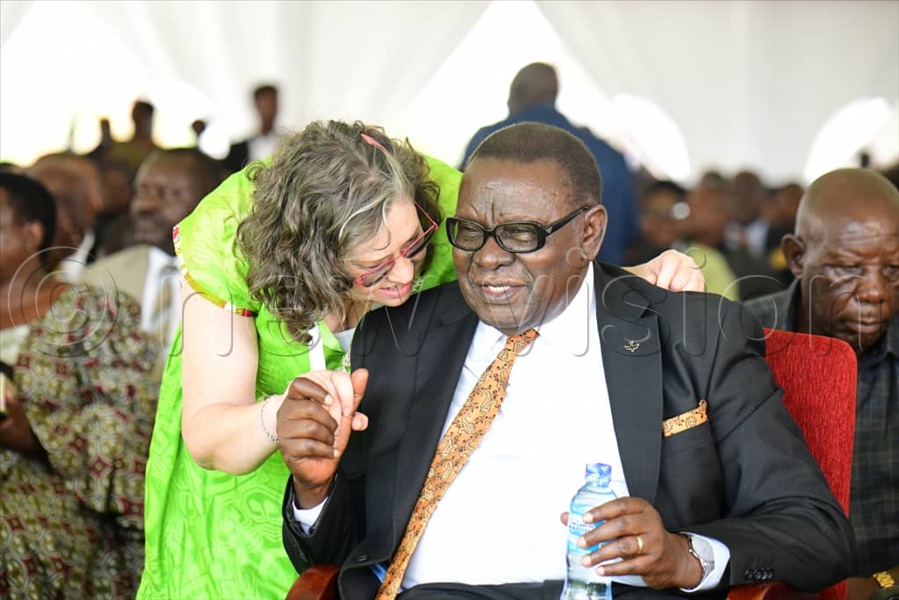
He reminded the gathering that forgiveness is not a favour but a command, saying, “Forgiveness is not a favour… Rather, forgiveness is a command. The power of forgiveness and reconciliation is an infrastructure.”
He cautioned that refusing to forgive is self-destructive, saying, “Not forgiving is like bringing poison, hoping that the enemy you hate will die. It is a terrible thing not to forgive.”
Rwakasisi recounted his political journey during and after the 1980 elections, when former President Milton Obote had promised to appoint him Prime Minister but later sidelined him.
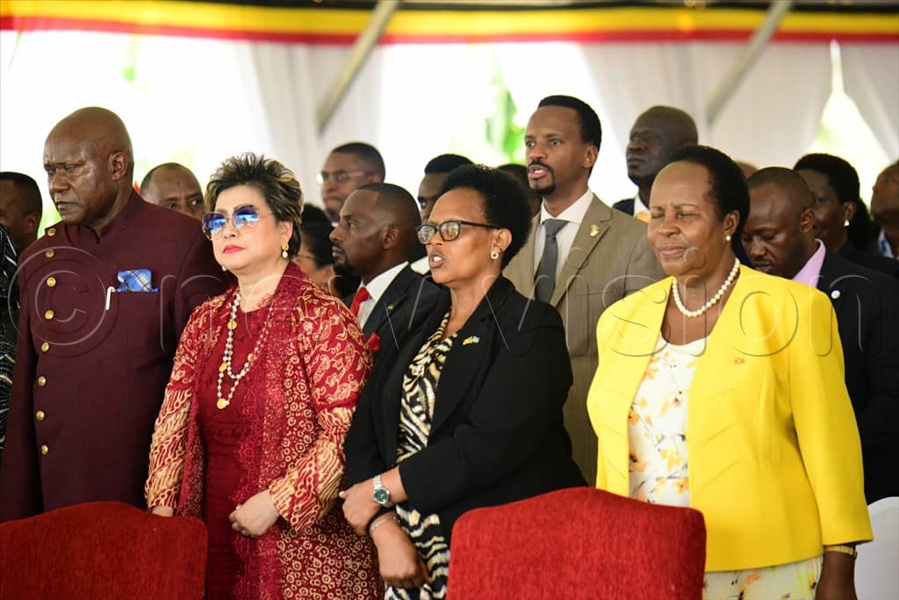
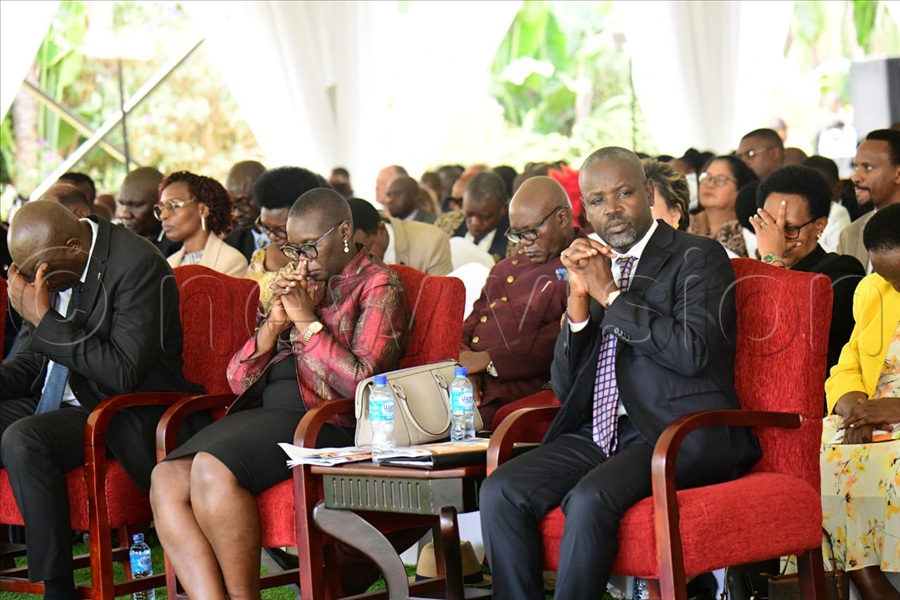
He described how pride and power drew him away from God until his downfall and imprisonment.
He testified that while in prison, he initially prayed for Museveni’s death but later found peace after the Holy Spirit reminded him that “one who does not forgive will never be forgiven.”
He said, “The more I prayed for Museveni to die and his family and government, the more he flourished. But the Holy Spirit helped me, and I changed my prayer from hate to love. I started praying for him and his family, and from there things started to ease.”
Rwakasisi said he later received divine assurance that he would be released: “A gentleman came near me and said, ‘Chris, fear not. No one is going to kill you. In a few days, you will leave this place,’ and in a few days, I left.”
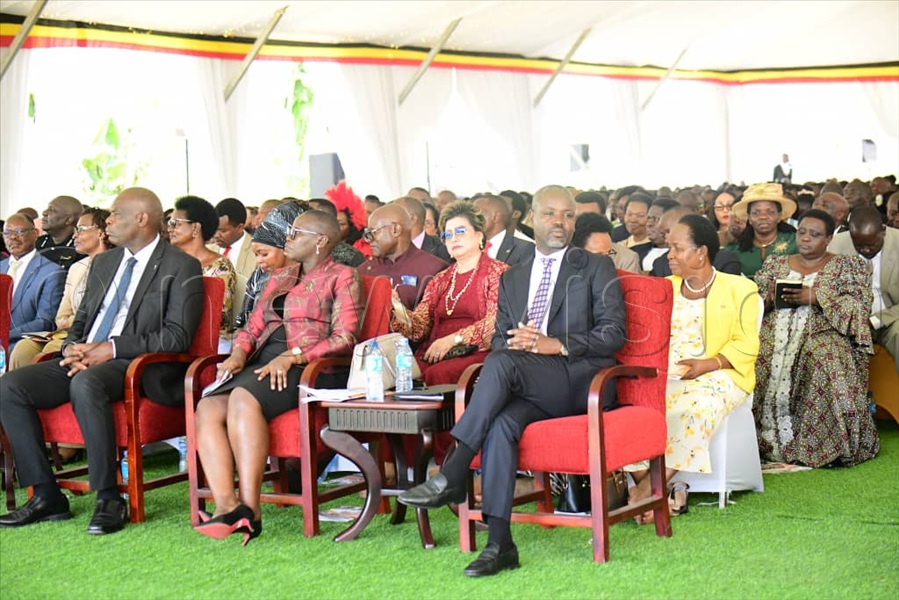
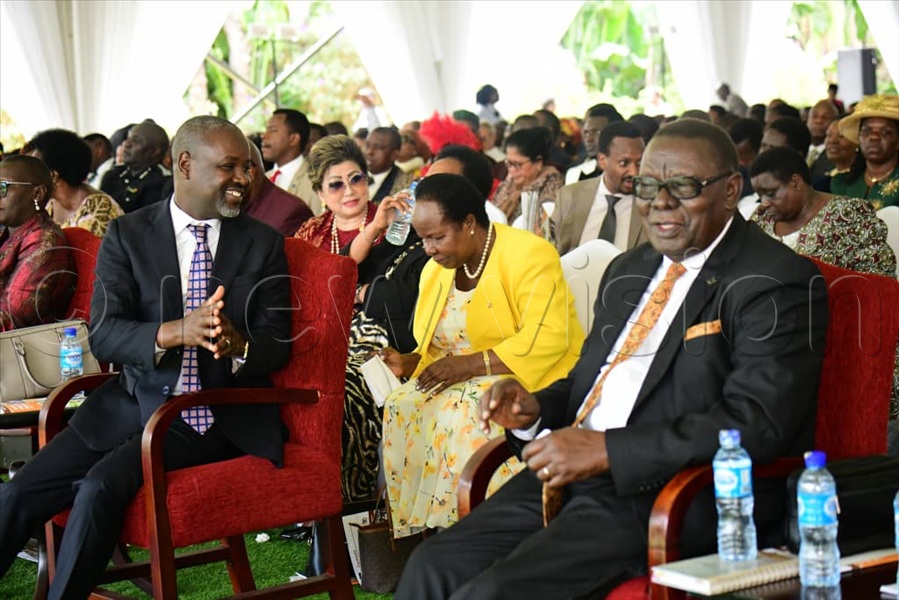
President Museveni later ordered his unconditional release with immediate effect. When they met, Rwakasisi said, “We embraced and sat down and talked like old lost brothers. He asked me how the case was, and that was reconciliation.”
The President later appointed him as a Special Presidential Advisor, a gesture Rwakasisi described as evidence of true forgiveness.
He thanked the President for not signing any death sentences since 1995 and conveyed the inmates’ plea for clemency, saying, “The inmates have asked me to request you to pardon them.”
In his concluding remarks, Rwakasisi encouraged those still in opposition to seek peace.
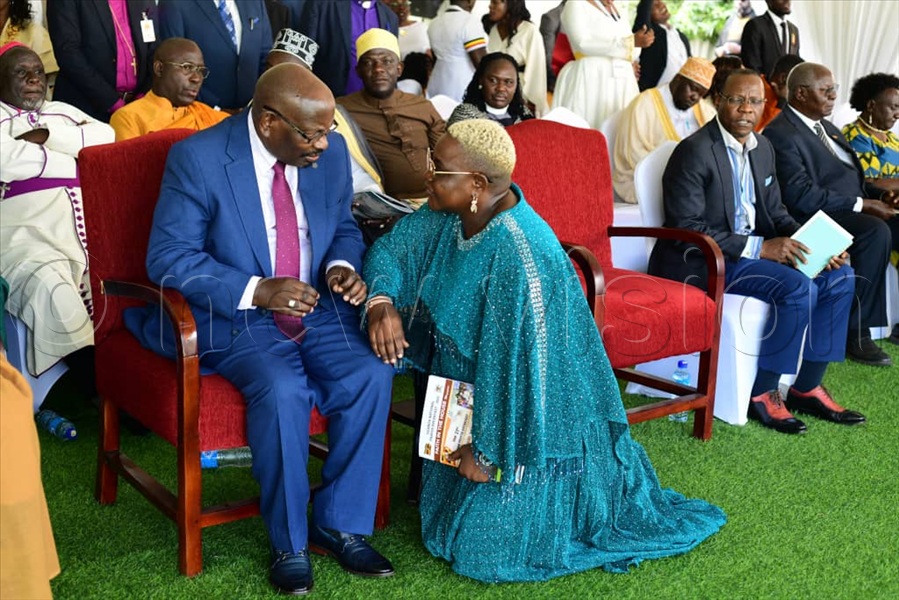
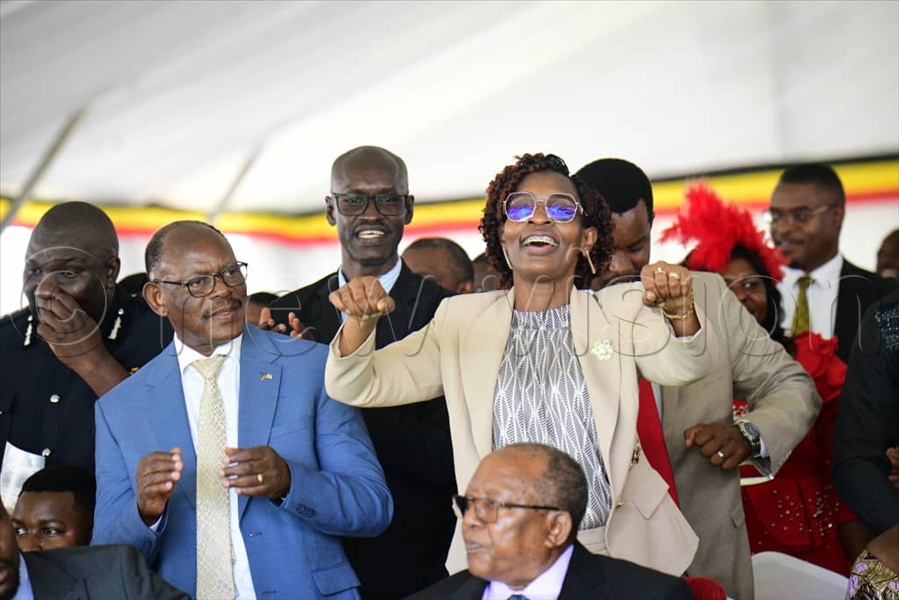
“You who want to fight Museveni, fight him. Me, I will not fight him,” he said, emphasising that forgiveness and reconciliation are not weaknesses but expressions of divine strength.
The keynote speaker, Bishop JB Masinde, emphasised that forgiveness begins with the words we speak, saying the tongue holds the power to build or destroy relationships.
He urged believers to guard their speech and use it as a tool for healing and unity.
Bishop Masinde reminded leaders and citizens alike that true reconciliation must begin with humility and the willingness to speak peace.
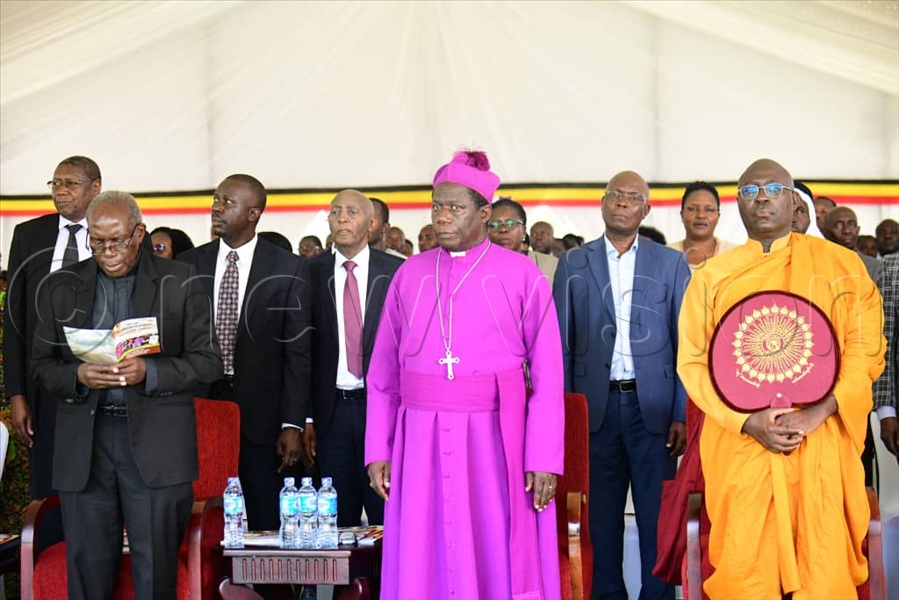
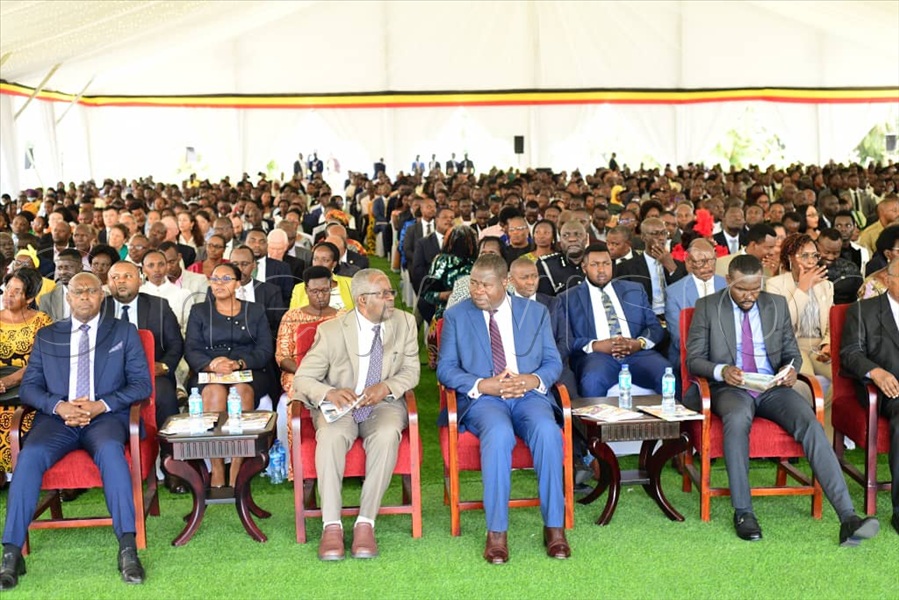
The Deputy Speaker of Parliament, Rt. Hon. Thomas Tayebwa noted that the day’s sermon resonated deeply, especially as the NRM party had just emerged from challenging primaries.
He observed that the message of forgiveness and reconciliation was timely and necessary for restoring relationships among leaders and strengthening unity within the party and the nation.